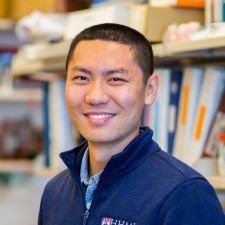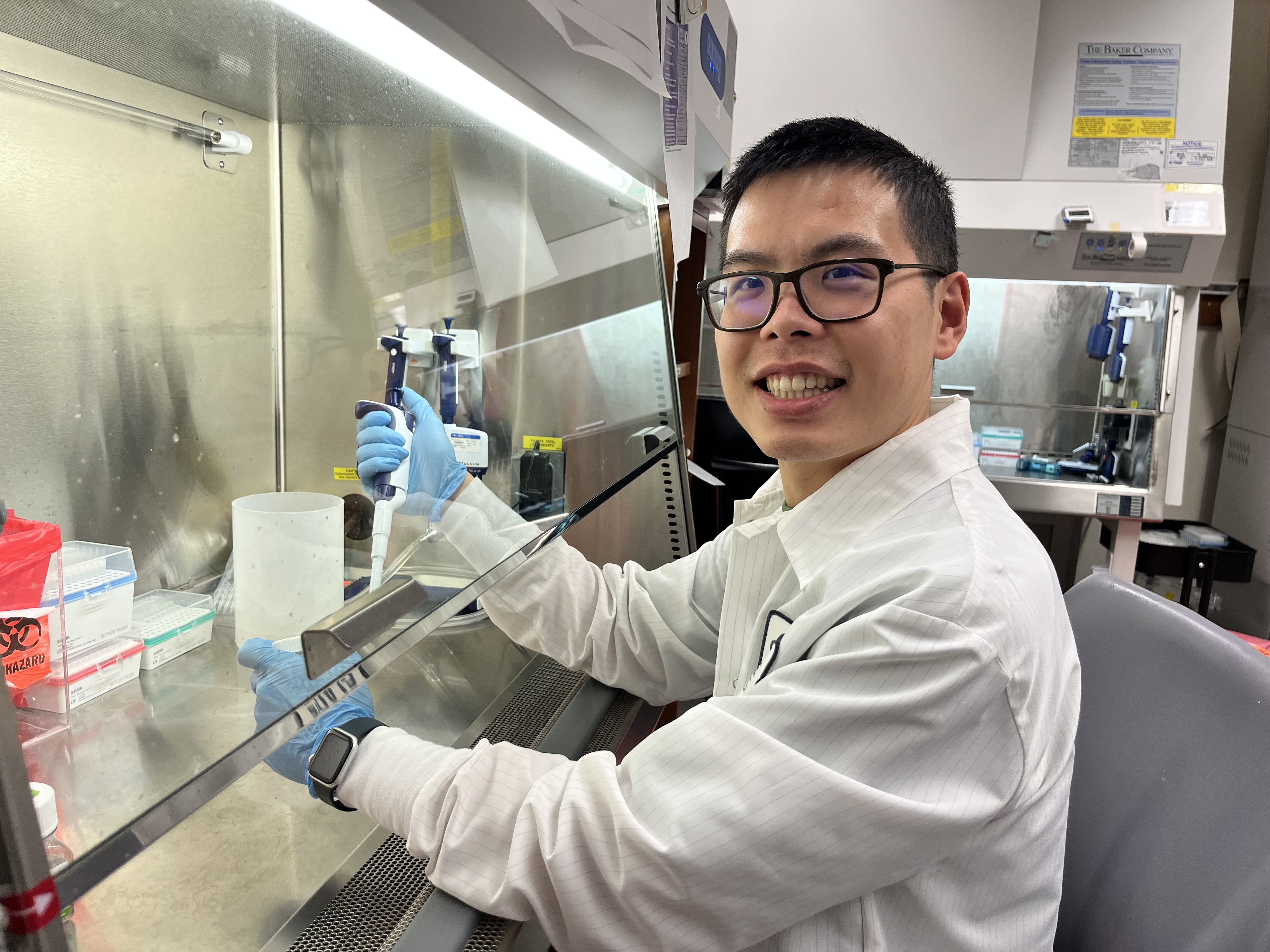On the cellular level, aging manifests as cellular senescence—when cells permanently stop multiplying but do not die. Aberrant accumulation of senescent cells is thought to be a major contributor to age-dependent tissue degeneration and its associated pathologies. Elimination of senescent cells has been shown to improve age-associated tissue damage pathologies and extend healthy lifespan in mice. Senescent cells undergo extensive remodeling on their surface, including increased production of many surface proteins. Dr. Zhang is using a quantitative proteomics approach to investigate the mechanisms and biological consequences of cell surface remodeling in senescent cells. His goal is to identify new therapeutic targets on the senescent cell surface and develop next-generation chimeric antigen receptor (CAR) T cells and antibodies to evaluate their impact on age-related diseases. Success with this approach may have a transformative impact on treating life-threatening diseases like cancer, fibrosis, and atherosclerosis. Dr. Zhang received his PhD from Gerstner Sloan Kettering Graduate School and his BS from Sun Yat-Sen University.
All Cancers
Current Projects

Our immune system can help us prevent or slow cancer development. Human CD4+ T cells play critical roles in regulating our immune responses to fight cancer. Upon encountering a pathogen, naïve CD4+ T cells differentiate into different T helper (Th) cells to perform diverse immune-modulatory functions. Variability in this differentiation process is associated with variable responses to cancer immunotherapy. While several genes necessary for differentiation have been identified, researchers lack a comprehensive map and a predictive model of the larger gene regulatory network (GRN) controlling this process. Dr. Zhu [Connie and Bob Lurie Fellow] plans to combine functional genomics with mathematical modeling to systematically map and model the human CD4+ T cell differentiation GRN and use the GRN model to predict and control the differentiation process. His work promises to provide a quantitative understanding of the CD4+ T cell differentiation process and open up new strategies for safer and more effective cell-based cancer therapy. Dr. Zhu received his PhD from the California Institute of Technology, Pasadena and his BS from Hong Kong University of Science and Technology, Hong Kong.







